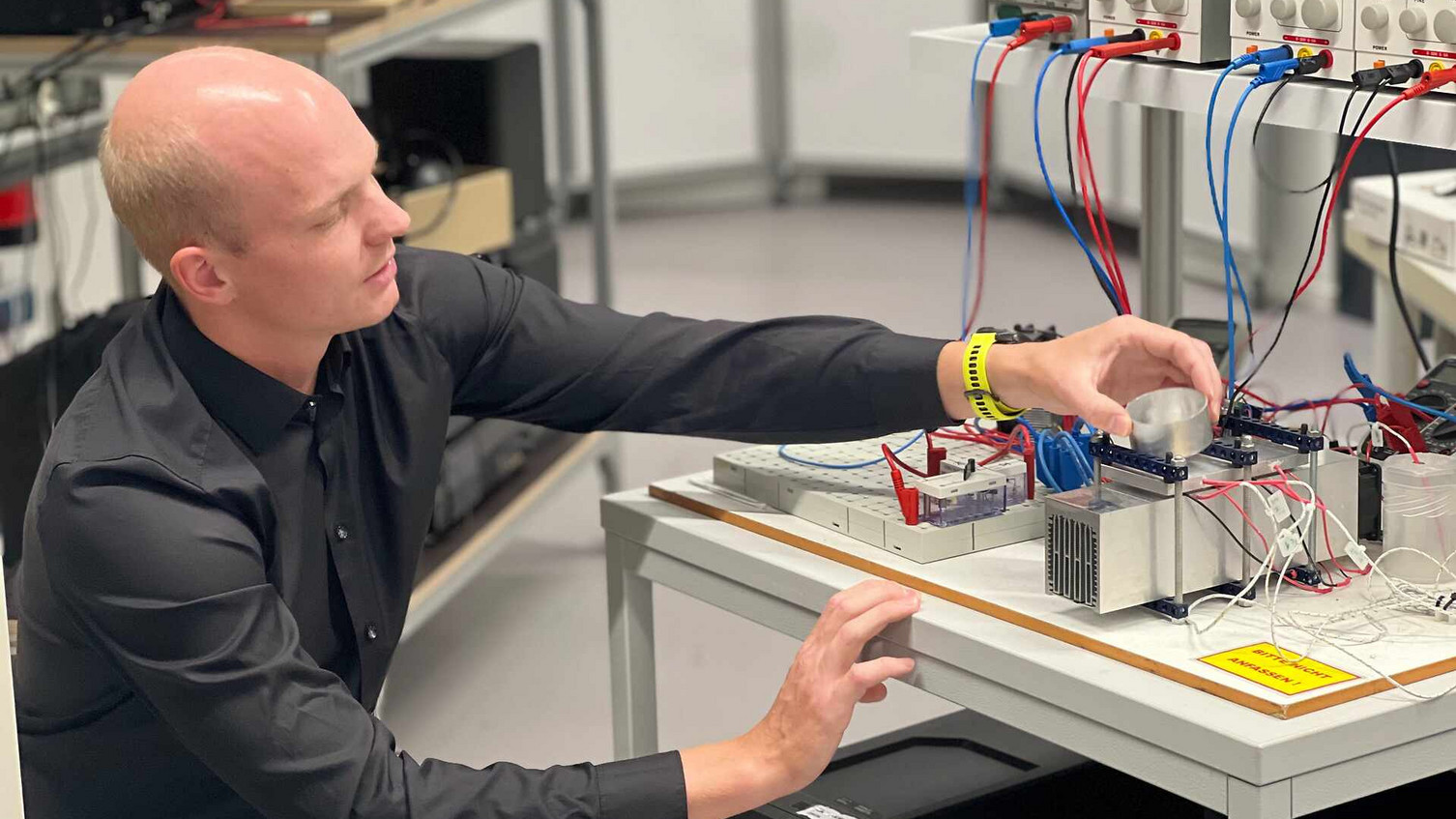Doctorate: Felix van Rossum - Ice-cold production
2024-09-09 The doctoral student is investigating how delicate workpieces can be clamped with ice with low energy consumption. He was honoured with a best paper award for his research.
Felix van Rossum uses a pipette to drip water onto a smooth radiator. The liquid spreads, freezes and - as shown here - holds a piece of pipe firmly in place. This almost stress-free fixation is particularly suitable for delicate components: Circuit boards, thin tubes, but also mobile phone covers made of light metals are very sensitive. The punctual application of force in a vice could lead to undesirable deformations.
The disadvantage of fixing with ice, however, is the high energy input. Only 30 per cent of the electricity used is converted into cold, sometimes even less. In addition, the system must remain stable. The temperature must therefore not fluctuate. "My job is to achieve the highest possible efficiency of the cooler with the least possible electricity. This makes production more sustainable and cost-effective," explains Felix van Rossum.
He recently presented his data from the thermodynamic calculations at an international conference for control engineering in Romania and was honoured with the Best Paper Award. "My calculation model is unusual. Very little work is done on thermal systems in control engineering," explains Felix van Rossum. The engineer is doing his doctorate under Prof. Dr Paolo Mercorelli, Professor of Control and Drive Engineering: "The supervision is close and my supervisor is always available."
This was not Felix van Rossum's first visit to the conference. He has already presented his Bachelor's thesis to international researchers - he also wrote this thesis with Paolo Mercorelli: "I received a lot of support. Since then, I have also presented at several conferences and look forward to it every time. Scientific discourse is very important in the doctorate."
Felix van Rossum completed both his Bachelor's and Master's degrees at Leuphana. "I had initially studied at a larger university, but felt a bit lost there. At Leuphana, the study groups are small and the contact with lecturers is good. The lab is also always open for my experiments," reports the doctoral student. He is supported by a scholarship from Leuphana.
Felix van Rossum also attributes his success at the conference to the consistency of his studies: "I was able to build up the knowledge I need for my research from Bachelor to Master via the doctoral programme at Leuphana."

